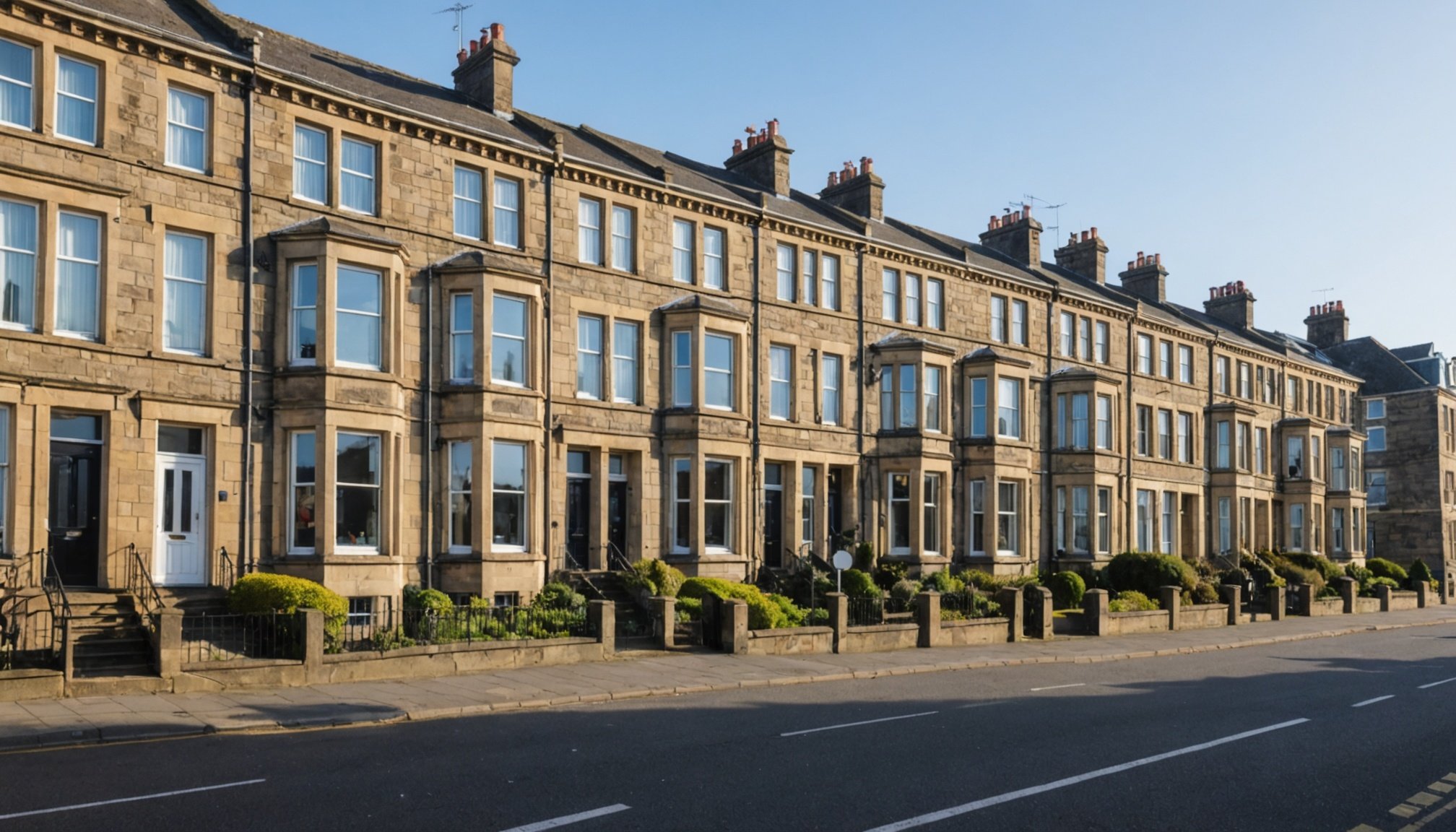Legal Feasibility of Converting Commercial to Residential in Swansea
Converting commercial properties into residential spaces in Swansea involves navigating a complex legal conversion process. Understanding property laws and real estate regulations is crucial to avoid potential pitfalls. Swansea’s local council provides the legal framework necessary for these transformations.
First, planning permission is often required. It ensures the proposed conversion aligns with local zoning laws and development plans. Additionally, compliance with safety standards, including fire regulations, is mandatory. These regulations safeguard future inhabitants and are non-negotiable.
A lire également : What are the best energy-efficient upgrades for old homes in Glasgow?
Common legal obstacles include failure to adhere to building codes or overlooking historical preservation rules when properties are listed. Such oversights can lead to costly legal disputes or project delays. Often, engaging with a solicitor experienced in real estate can help navigate these complexities effectively.
Moreover, examining lease agreements is essential. Many leases contain clauses restricting modifications or requiring landlord consent. Hence, a thorough review of contractual obligations can prevent legal challenges later on. Ultimately, understanding the legal implications and proactively addressing them lays a strong foundation for successful and lawful property transformations.
A lire également : Mastering Renovation Budgeting: A Comprehensive Guide to Estimating Costs for Your Victorian Home in London
Zoning Regulations and Their Impact on Property Conversion
Zoning laws are crucial in determining how a property can be used or developed. These land use regulations are established to segregate urban land into zones where particular land uses are permitted. Each zone is subject to specific rules and restrictions, impacting anything from building heights to property density.
Overview of Zoning Categories
There are several zoning categories, such as residential, commercial, and industrial zoning. Residential zoning typically limits properties to housing or living purposes. These rules can dictate the number of dwellings on a plot, height restrictions, or even the types of housing allowed, like single-family homes or apartments. Understanding these categories is essential for determining what changes or conversions might be permissible.
Specific Zoning Regulations in Swansea
In Swansea, unique zoning regulations can significantly influence property conversion projects. As with many locales, the city has delineated its territories based on residential, commercial, and mixed-use objectives. These regulations can include stringent rules on building materials, aesthetic integrity, and adherence to historical preservation standards, especially in culturally significant areas.
Steps to Navigate Zoning Challenges
Successfully addressing zoning challenges demands strategic planning:
- Research local zoning ordinances thoroughly to understand applicable rules.
- Engage with local zoning boards early in the planning process.
- Consider consulting professionals, such as land use attorneys, to explore creative compliance solutions.
By understanding these categories and regulations, navigating zoning complexities becomes much more manageable.
Necessary Permits and Application Processes
Navigating the complicated landscape of acquiring necessary permits for property transformation projects, such as conversions, can feel overwhelming. Each project demands thorough understanding of the specific building permits required. Typically, a combination of planning permissions and other certifications may be necessary, depending on the scope of the transformation.
Residential conversions, in particular, necessitate a detailed breakdown of the application process. Begin by consulting with your local council to ascertain which permits apply to your property transformation. Secure planning applications early on, as they often require detailed information about proposed changes, including structural alterations and alterations to the building’s exterior.
It is vital to engage in discussions with local authorities when navigating the web of permits. Their guidance ensures compliance with regulations and avoids potential legal issues. The process of obtaining permits may involve:
- Submitting detailed plans and designs
- Providing environmental impact assessments
- Addressing community concerns through consultations
Engaging with experienced consultants or professionals can streamline this process, saving time and preventing costly errors. Understanding the importance of these permits not only protects your investment but also fosters community trust and ensures a smooth transition from planning to project completion.
Case Studies of Successful Conversions in Swansea
Delving into residential case studies of Swansea, we encounter numerous success stories that exemplify the region’s vibrant property transformation scene. These stories provide insights into how properties have been successfully converted under local regulations.
Examples of Converted Properties
Swansea hosts a plethora of inspiring examples of converted properties that stand as landmarks of innovation and efficiency. From old warehouses transitioning into sleek loft apartments to historic homes being modernised with sustainable features, these property transformation examples showcase a diverse range of design strategies that respect heritage while embracing new functionalities.
Analysis of Successful Applications
Examining what makes these conversions successful involves appreciating their adherence to Swansea’s unique planning and zoning laws. Successful projects often blend compliance with creativity, utilising locally sourced materials and engaging with community feedback to gain approval.
Lessons Learned from Real-Life Cases
Key takeaways from these case studies include the crucial role of thorough planning and community engagement. Prospective property owners looking to replicate these success stories should consider thorough market analysis and seek collaborations with local architects who understand Swansea’s landscape. Leveraging these insights can lead to transformative results that benefit not only property owners but the broader community.
Challenges and Benefits of Converting Commercial Properties
The pros and cons of converting commercial properties into residential units are numerous and varied. Understanding the potential challenges is crucial before embarking on such projects. Among the primary property conversion challenges are the substantial costs and extended timeframes often involved. Renovations can be expensive due to the need for adapting old structures to meet new residential codes and standards. These conversions require both financial investment and patience, as timelines often extend beyond initial projections.
Despite these hurdles, there are compelling benefits of transformation. Beyond the obvious financial profits, such as increased property value and rental income, these transformations often contribute to urban revitalisation, improving community aesthetics and utility. Residents can enjoy innovative living spaces within previously unused areas, fostering a sense of connectivity and modernity in urban settings.
Experts suggest a thorough evaluation of risks versus rewards for budding investors. Key considerations include the potential for cost overruns and the demand for residential properties in the area. By weighing these factors, one can make informed decisions on whether the rewards of such undertakings outweigh the risks involved. Through careful planning and execution, these transformations can lead to significant long-term benefits for both developers and communities alike.
Expert Advice from Legal and Real Estate Professionals
Navigating the property conversion landscape in Swansea requires expert insights and careful planning. Legal advice and real estate guidance are crucial to ensure success and compliance.
Tips from Real Estate Agents in Swansea
In Swansea, seasoned real estate agents recommend several strategies. Begin by conducting thorough market research to understand current trends. Consider reaching out to local realtors for expert insights into pricing strategies and neighborhood dynamics. Additionally, ensure properties are in appealing locations conducive to conversion projects. Understanding these fundamentals can enhance your investment potential.
Legal Considerations Highlighted by Industry Experts
When it comes to legal issues, consulting with attorneys specialising in property law is imperative. They emphasise the importance of clarifying zoning laws and obtaining necessary permits. Experts warn that failure to adhere to local regulations can lead to costly legal repercussions. Acquiring detailed legal advice early in the process can safeguard against unexpected challenges.
Recommended Practices for Potential Property Owners
Potential property owners are encouraged to follow best practices for seamless conversions. These include:
- Securing professional real estate guidance to make informed decisions.
- Ensuring compliance with all legal requirements.
- Prioritising transparency in all dealings with contractors and legal advisors.
By leveraging expert insights, prospective owners can navigate this complex arena efficiently and effectively.












